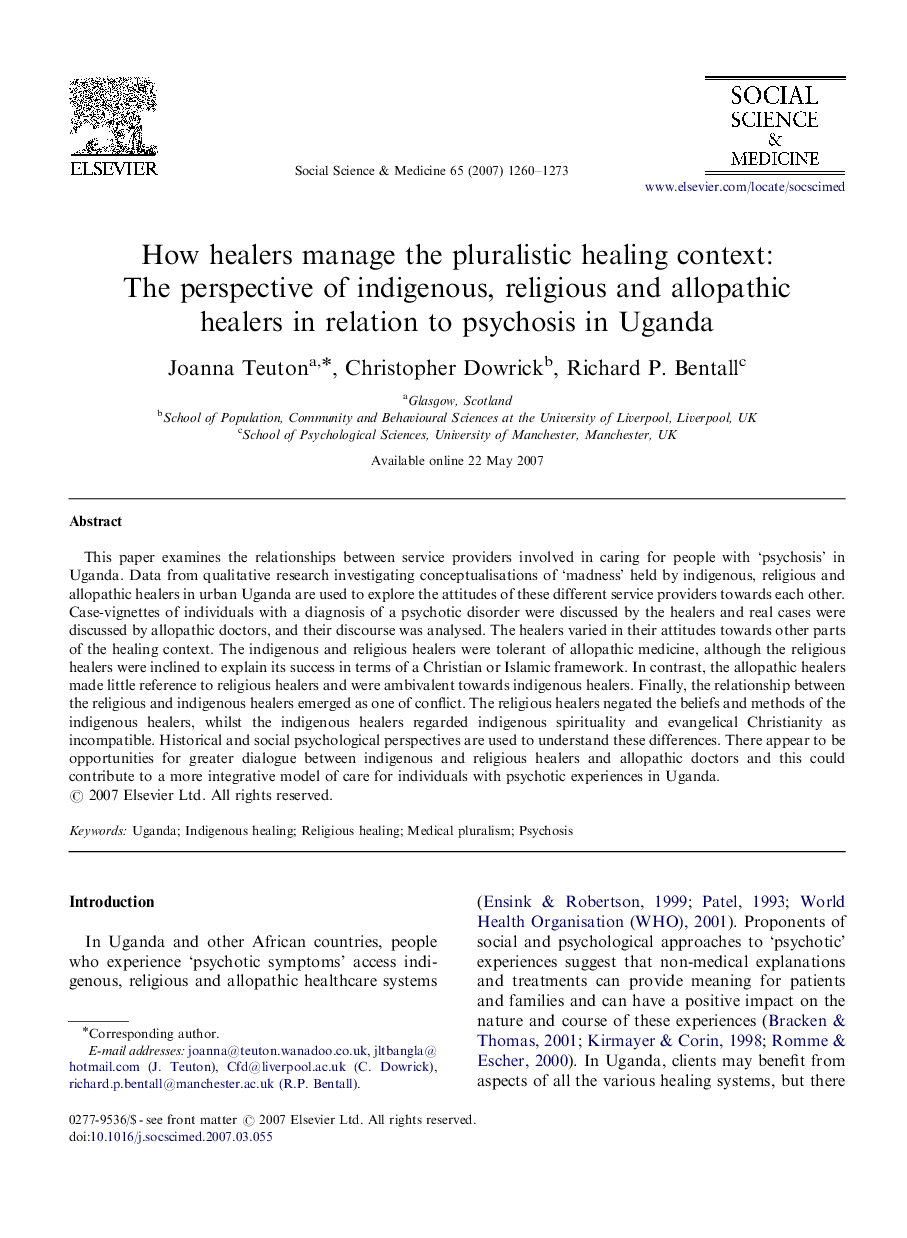| Article ID | Journal | Published Year | Pages | File Type |
|---|---|---|---|---|
| 10472175 | Social Science & Medicine | 2007 | 14 Pages |
Abstract
This paper examines the relationships between service providers involved in caring for people with 'psychosis' in Uganda. Data from qualitative research investigating conceptualisations of 'madness' held by indigenous, religious and allopathic healers in urban Uganda are used to explore the attitudes of these different service providers towards each other. Case-vignettes of individuals with a diagnosis of a psychotic disorder were discussed by the healers and real cases were discussed by allopathic doctors, and their discourse was analysed. The healers varied in their attitudes towards other parts of the healing context. The indigenous and religious healers were tolerant of allopathic medicine, although the religious healers were inclined to explain its success in terms of a Christian or Islamic framework. In contrast, the allopathic healers made little reference to religious healers and were ambivalent towards indigenous healers. Finally, the relationship between the religious and indigenous healers emerged as one of conflict. The religious healers negated the beliefs and methods of the indigenous healers, whilst the indigenous healers regarded indigenous spirituality and evangelical Christianity as incompatible. Historical and social psychological perspectives are used to understand these differences. There appear to be opportunities for greater dialogue between indigenous and religious healers and allopathic doctors and this could contribute to a more integrative model of care for individuals with psychotic experiences in Uganda.
Related Topics
Health Sciences
Medicine and Dentistry
Public Health and Health Policy
Authors
Joanna Teuton, Christopher Dowrick, Richard P. Bentall,
